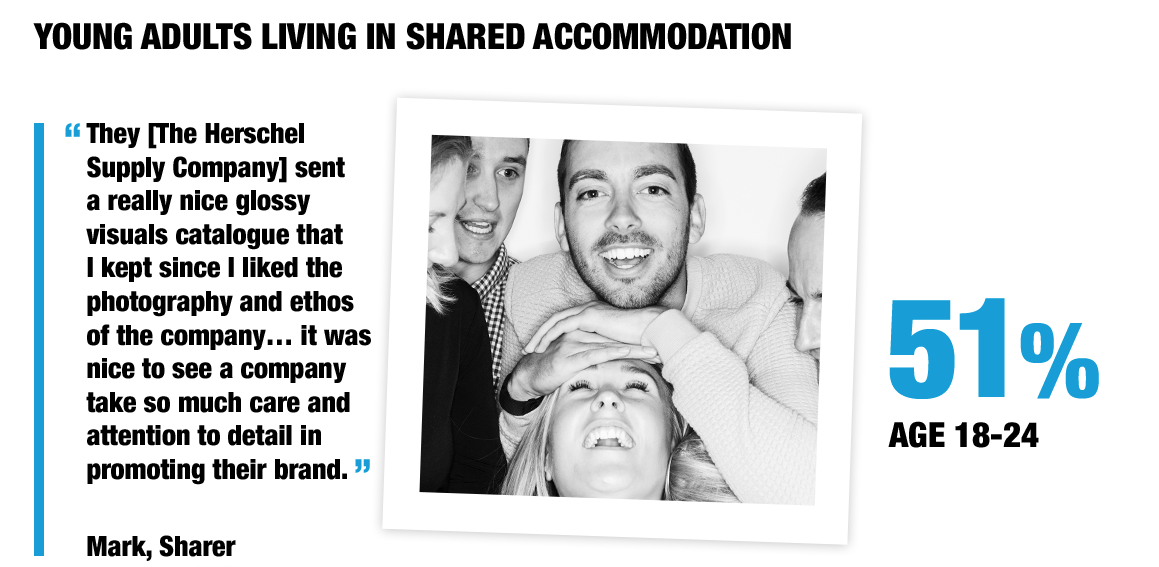The 7 Life Stages of Mail: Sharers

The young ones – newly independent social butterflies who won’t stay still. This group would respond well to letterbox drops because they’re open to building relationships with brands. They’re two times more likely to provide personal details to companies.
Sharers are the least likely life stage to respond to addressed mail, but are more likely to respond to letterbox drops. They like mail, and they trust it. It provides them with reassurance about the quality of the product or service the sender provides.
Social identity is important to sharers
- – 57.1% agree with the statement “I often compare what I do with others in my social circle”.
- – Mail that reflects their aspirations and self-image is appreciated and noticed.
- – Sharers are 45% more likely than the average to find mail memorable, and 14% more likely than the average to trust printed material more than the internet.
Door drops are especially effective for sharers
- – As young adults, Sharers are mobile and do not often show up on many databases (so they don’t get much addressed mail) – some mail may even go to their parents’ addresses. In shared households, only one person is usually the named account holder for utilities.
- – But they respond to door drops. With 8.2% of them saying they bought or ordered something as a result of receiving unaddressed mail in the last year (they index at 175)*. 4.4% provided personal or household information to a company or service provider in response to door drops in the last year (index 209).
- – Door drops are often displayed communally – Sharers are 24% more likely to show it to others or display it.
Value is a powerful message
- – Almost a third of Sharers (30%) say they find it difficult or very difficult on their present income; many will be students and first jobbers. Many will be paying rent and utilities for the first time.
- – Value therefore matters and the value proposition should be communicated clearly.
Mail is taken out of the home
Mail may be taken out of the home and dealt with while commuting or at work. It will be more effective if it is physically easy to handle and contains clear digital and other response cues.
“My letter and newsletter from Plan charity came three weeks ago. I didn’t open for a week as was too busy. Then it was in my work bag for a few days then I opened it on the train the next day. and then have kept it in my bedroom by the side of the bed.”
